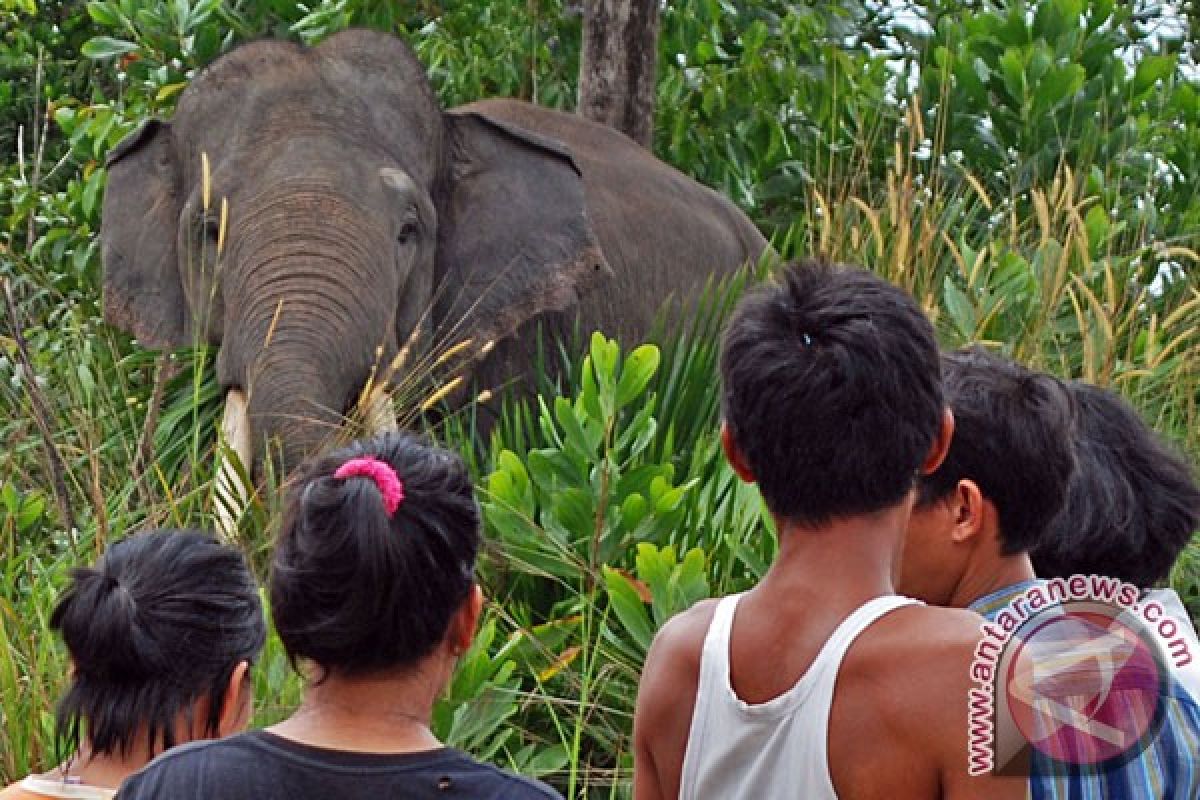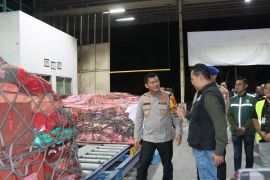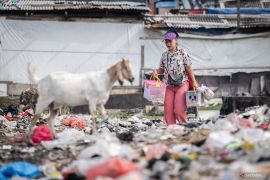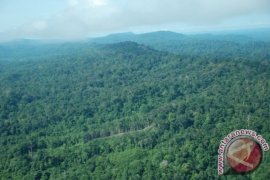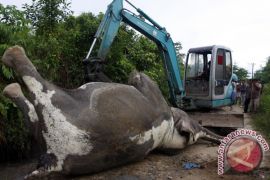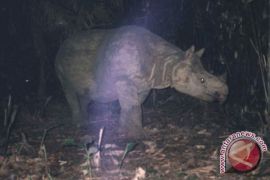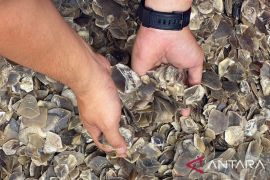An elephant also died after being electrocuted in Duri region, near a residential area."Pekanbaru (ANTARA News) - The World Wide Fund for Nature (WWF) has said that four Sumatran elephants died in 2016 in Riau Province, a decline from the previous year.
"In 2015, there were 10 cases of dead elephants, while in 2016, the number decreased to four," Spokesperson of WWF of the Riau Program Syamsidar said here on Tuesday.
The four deaths are believed to have occurred due to conflict between humans and wild animals.
Last year, the Tesso Nilo National Park Authority found the carcass of a Sumatran elephant in Pelalawan District.
They also found a Sumatran elephant snared in an industrial forest concession. The animal did not survive despite treatment.
In September last year, an elephant calf was found trapped in a ditch in an industrial forest concession with wounds all over its body.
"An elephant also died after being electrocuted in Duri region, near a residential area," Syamsidar said.
No suspects were either identified or arrested in these cases, Syamsidar said.
WWF, an international non-governmental organization in the field of the wilderness preservation, and the reduction of humanitys footprint on the environment, estimated there were around 100 Sumatran elephants living in the Sumatran habitat.
As the landscapes and the habitats make way for industry and residential areas, wildlife is facing greater challenges for survival.
Although conflict between humans and wildlife is inevitable, Syamsidar said that the local authority and several private enterprises, which have forest concessions in Riau, have been working together to prevent and mitigate the conflict.
Only three private enterprises, PT Riau Andalan Pulp and Paper (RAPP), Asian Agri and PT Musim Mas, have been involved in this effort by adopting the human-wildlife conflict mitigation system being implemented by the WWF and Natural Resource Conservation Agency (BKSDA) of Riau.
RAPP has established a so-called flying squad, consisting of at least four grown elephants and two calves, whose task is to conduct patrols around the concession area to avert human-wildlife conflict as well as prevent elephant herds trespassing into residential areas or villages.
Asian Agri has a similar program but they conduct patrolling without using elephants, Syamsidar said.
"They perform the patrol manually, without any elephants, but still adopt the measures used by the WWF, such as using a carbide cannon," he said.
PT Musim Mas, however, is committed to provide financial support for the program, Syamsidar said.
(Reporting by FB Anggoro/Uu.A059/INE/R-BSR/A014)
Editor: Priyambodo RH
Copyright © ANTARA 2017
